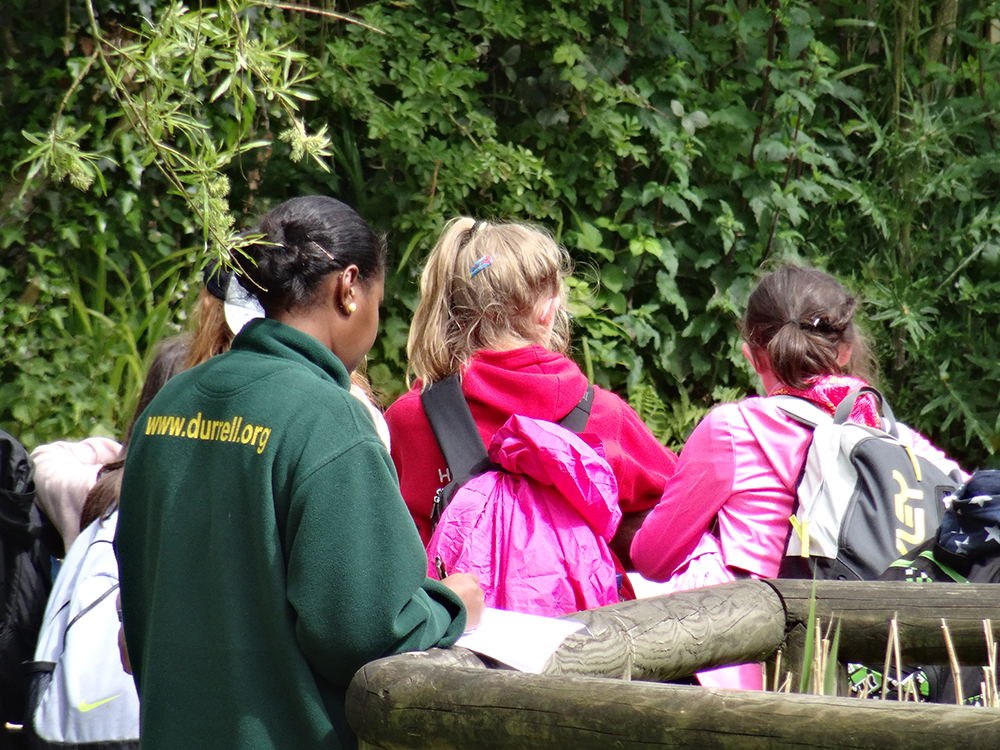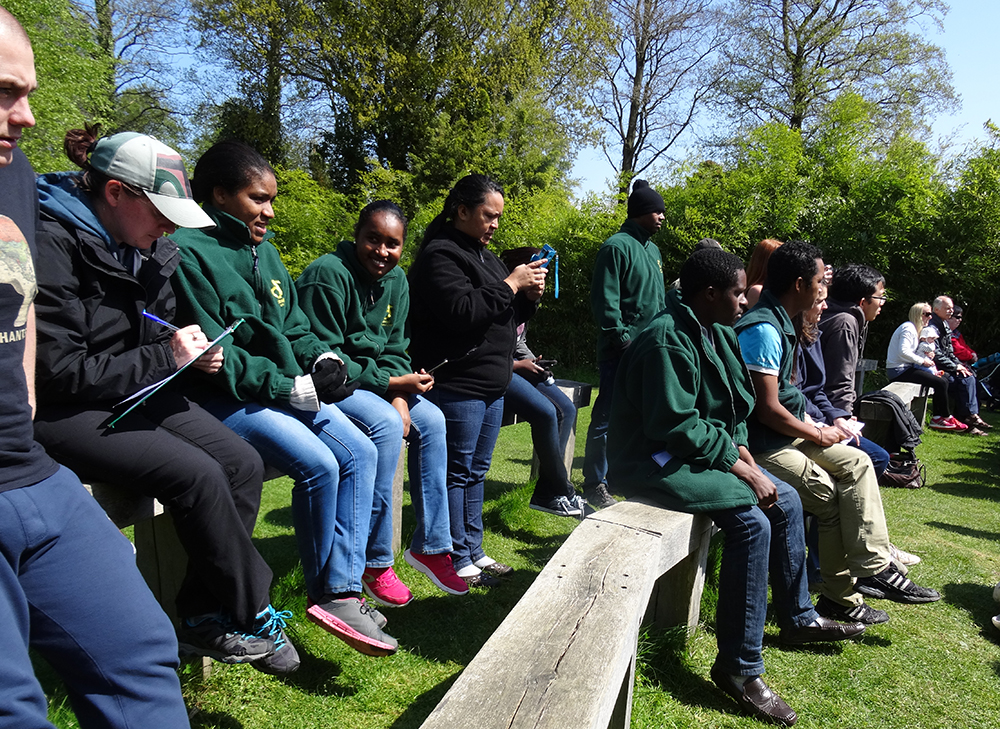Last year was challenging for all of us, however, it also marked the publication of the World Zoo and Aquarium Conservation Education Strategy [WZACES] – Social Change for Conservation, by IZE and WAZA.
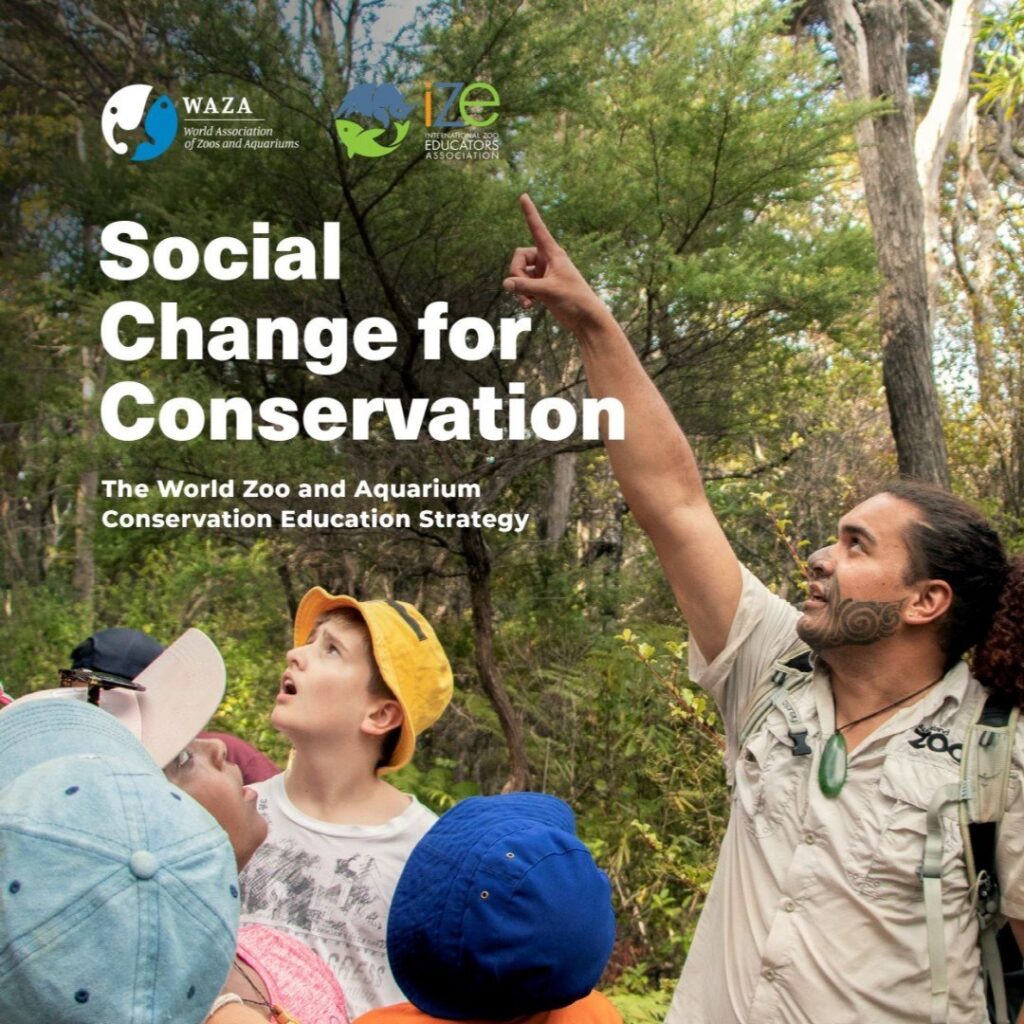
Zoo and Aquarium educators across the world, including ZooStephen, were part of the discussion and sharing of practice for lead author Sarah Thomas (now at Auckland Zoo, NZ) to write this important and useful document – available free from www.izea.net (education tab)
To help everyone become familiar with, understand and implement the strategy – across the world and in many different contexts – IZE are running a series of webinars for each chapter.
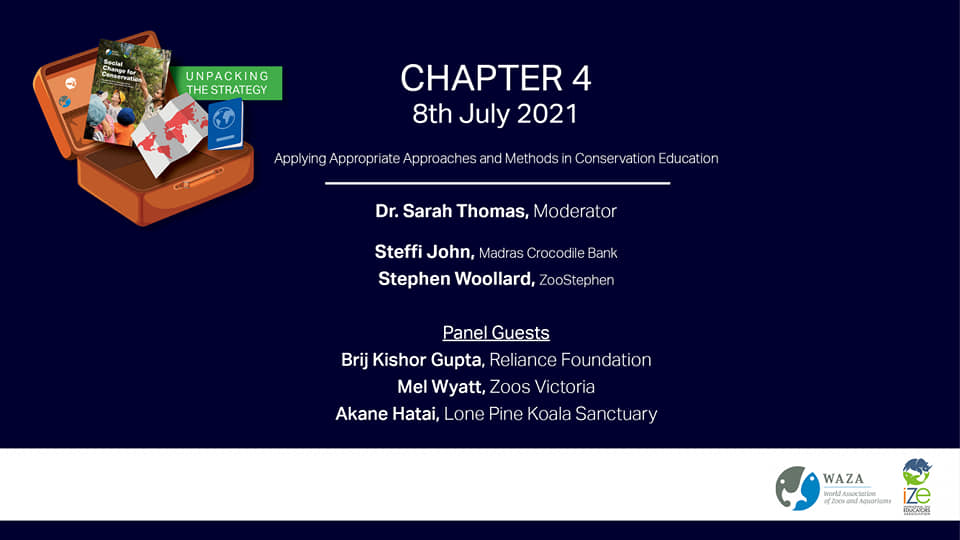
I was delighted to be asked to be part of he webinar series and take part as a presenter on Chapter 4 – Applying Approaches & Methods in Conservation Education. Steffi John from Madras Crocodile Bank Trust presented on her great work in India, and we were joined by Mel, Akane and Brij with Sarah, in a panel session to conclude. Like the other webinars this available via YouTube https://youtu.be/eD1sdQr7MBE
As examples I focused upon my work on the interpretation and education plan for Budongo Trail, RZSS Edinburgh Zoo and with Chimelong Safari Park, China to illustrate the importance of deciding upon learning outcomes and applying these in practice.
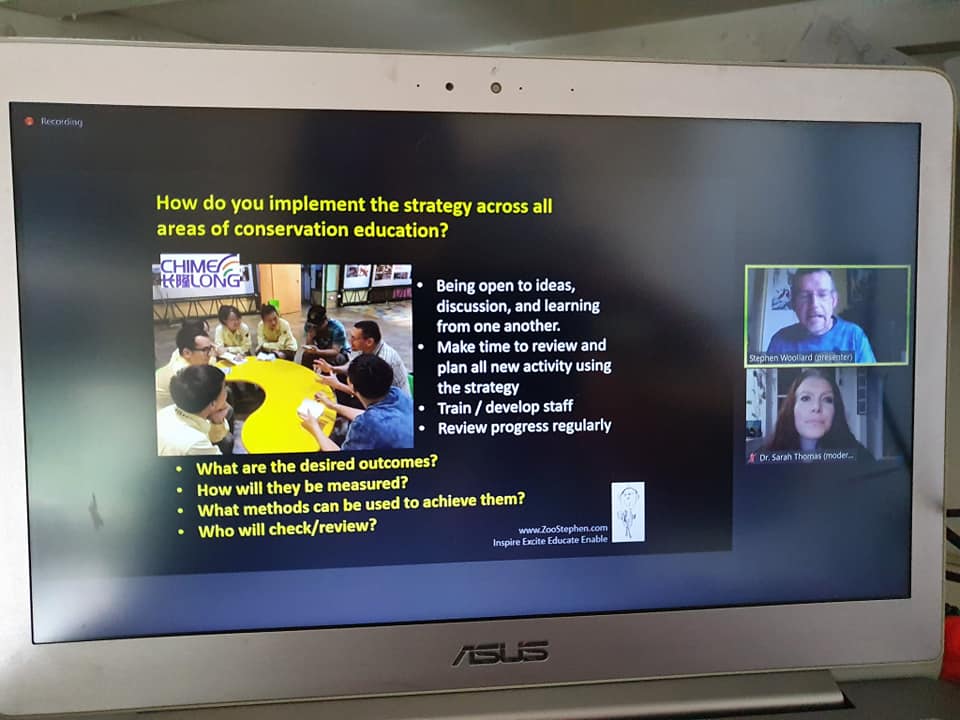
The Zoo and Aquarium education community is great at sharing and learning from one another, so it was good to be involved in this activity. I am still learning after more than 3 decades working in this field.

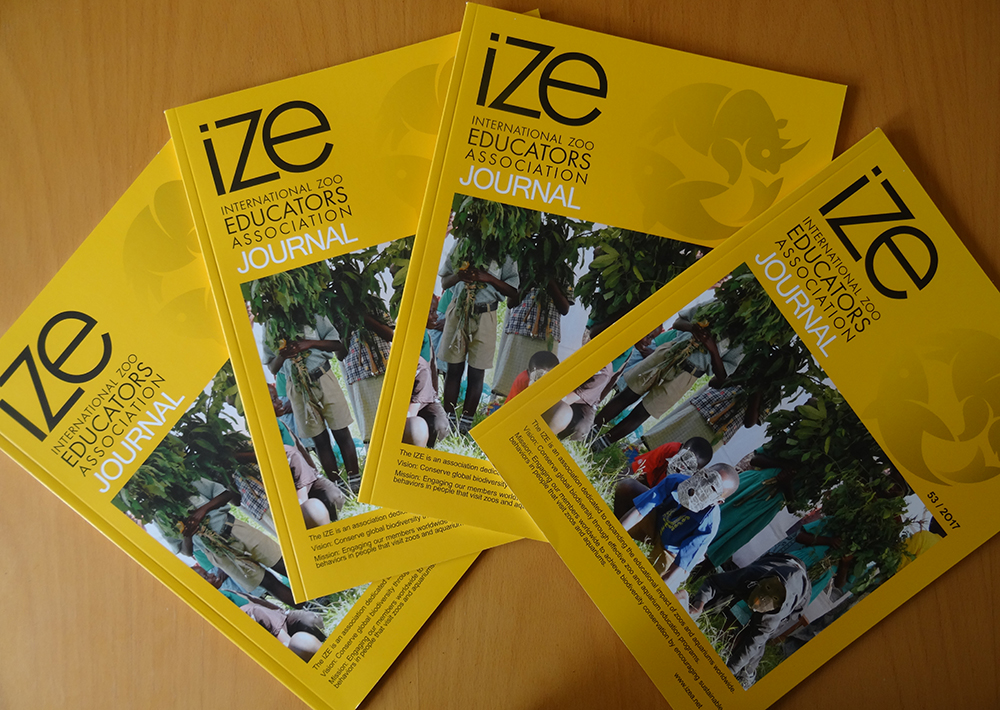 I was honoured to be chosen by IZE to be on the Executive Committee and to be the Journal Editor for the past 5 issues. The latest, my last, 2017 Journal has just been published and will be circulated to members during August. (Past issues are available on the website).
I was honoured to be chosen by IZE to be on the Executive Committee and to be the Journal Editor for the past 5 issues. The latest, my last, 2017 Journal has just been published and will be circulated to members during August. (Past issues are available on the website).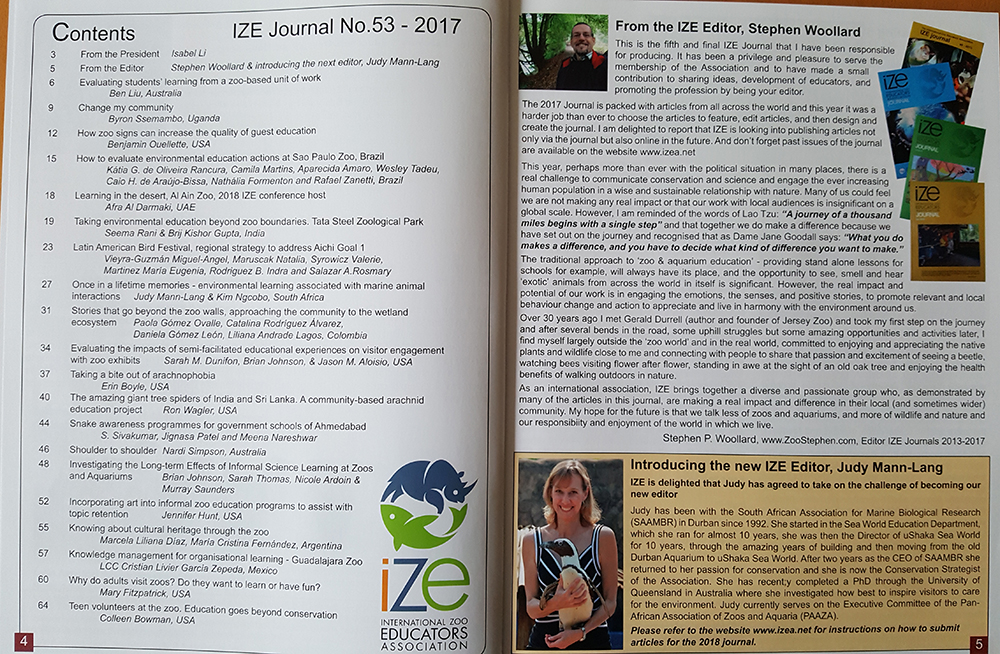
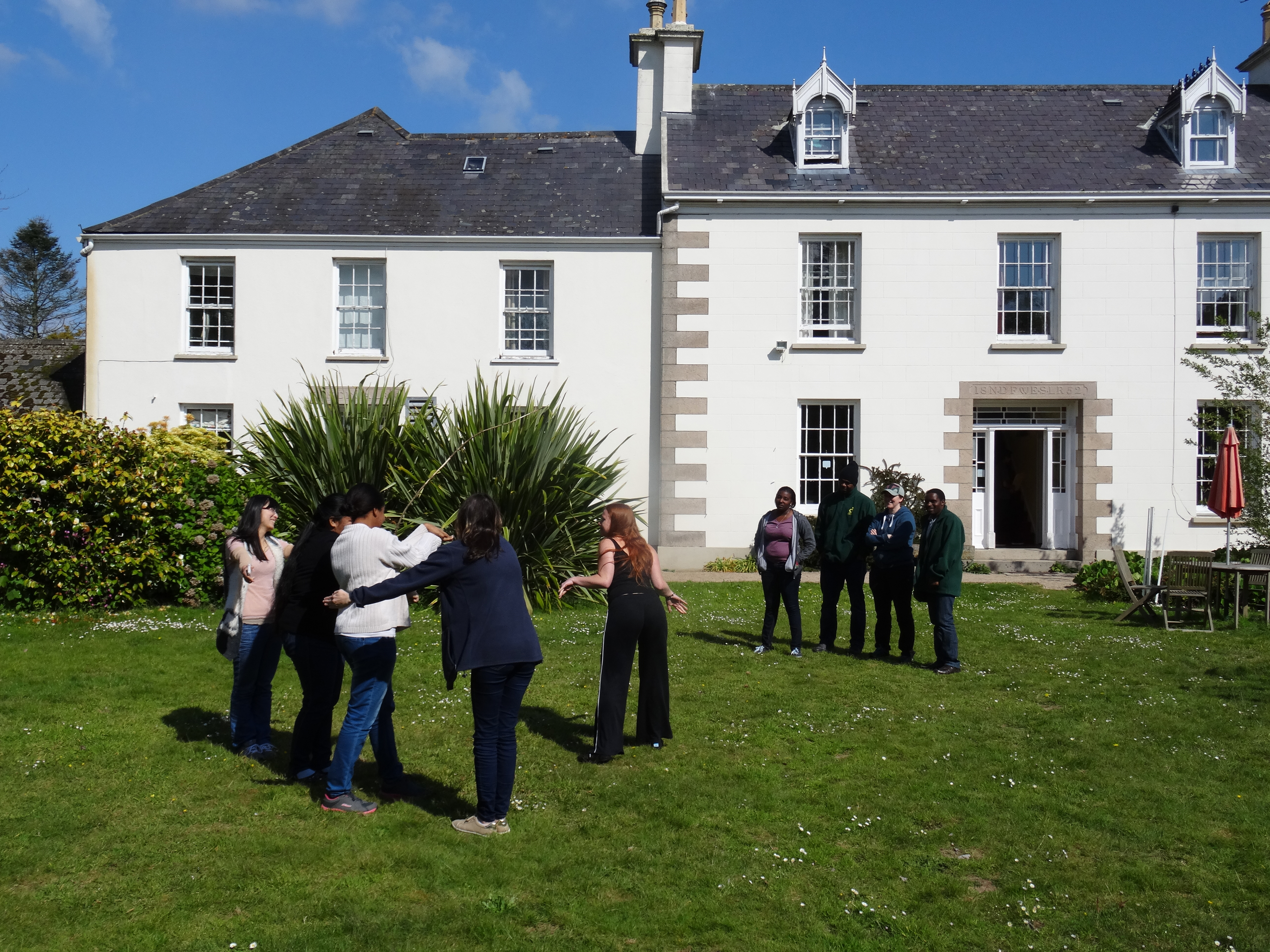
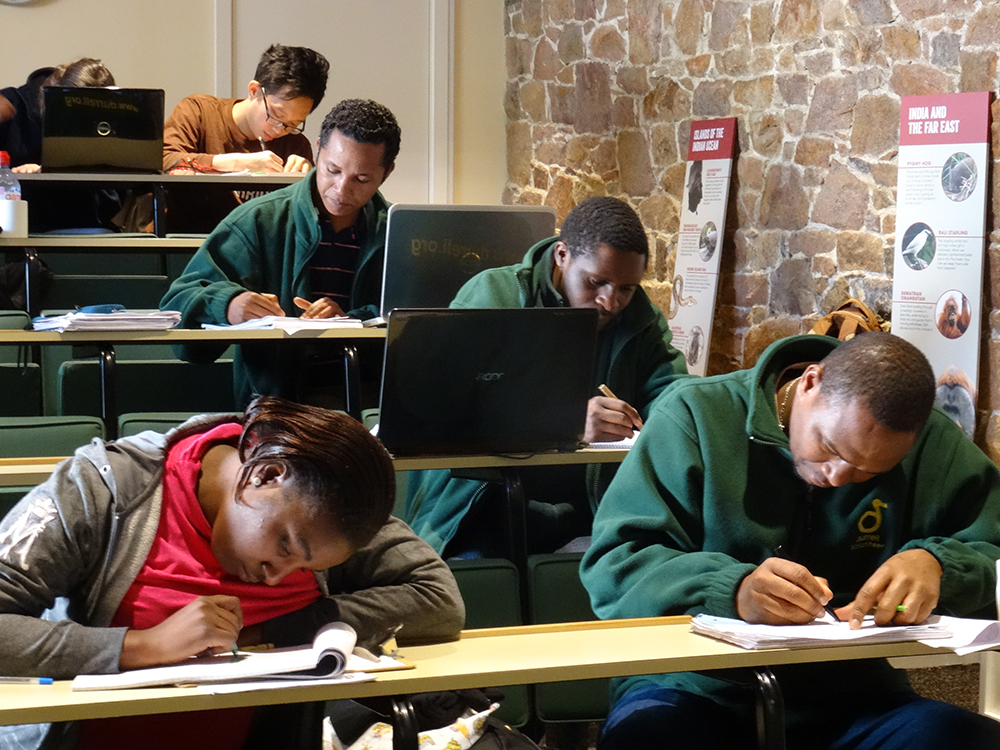 The Durrell Conservation Academy in Jersey has been involved in the training of hundreds of conservationists from around the world and its flagship programme is the Durrell Endangered Species Management Graduate Certificate – DESMAN. It was an honour to be asked to run the Conservation Education training aspect of this year’s course.
The Durrell Conservation Academy in Jersey has been involved in the training of hundreds of conservationists from around the world and its flagship programme is the Durrell Endangered Species Management Graduate Certificate – DESMAN. It was an honour to be asked to run the Conservation Education training aspect of this year’s course.